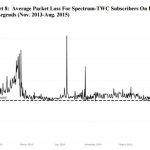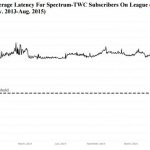
Remember back in the day when you’d complain about your lag and connectivity issues in an online game, only to have the studio tell you the equivalent of, “It’s ur ISP”? Well, maybe it is. And maybe it’s intentional.
That’s the contention of the state of New York, which earlier this month filed a lawsuit against the Time Warner conglom alleging a number of complaints that add up to fraud: that the corporation knowingly makes “false representations about speed and reliability” such that its internet network is overloaded, delivering a fraction of what consumers are promised and paying for; that the corporation rents deficient modems; that the corporation “rigged test results”; that Time Warner engineers knew and reported all this and the execs did nothing; and that the corporation took advantage of technical complexity and the public’s limited ISP choices to get away with it all.
So, telecom screws customers and gets caught and is now being sued by a state with intent to recover damages — why report that here? Because League of Legends is mentioned four times in the complaint — along with Netflix, Amazon, Facebook, and YouTube — as being one of the major platforms disrupted by Time Warner’s skeevy activities, and in fact, Riot Games provided latency data to the state attorney general in the service of the investigation.
“One of the most popular online games during the Relevant Period was League of Legends, which was developed and published by Riot Games,” says the complaint.
“Latency above 100 milliseconds affected performance in key parts of the game, creating lag time that put Spectrum-TWC subscribers at a disadvantage to their gaming competitors on other ISP networks. Similarly, packet loss of more than two percent resulted in interruptions, buffering, and other performance issues. Data from Riot Games confirmed that from at least September 2013, when Riot Games started to maintain this data, through August 2015, when Riot Games agreed to pay Spectrum-TWC for access, Spectrum-TWC subscribers did not enjoy a ‘good network experience.’ […] It was not until Riot Games agreed to pay Spectrum-TWC for access to its subscribers, that Spectrum-TWC agreed to connect its ports to Riot Games. Prior to this, Spectrum-TWC deprived its subscribers of reliable access to online content as promised.”
So maybe it was your ISP.
















